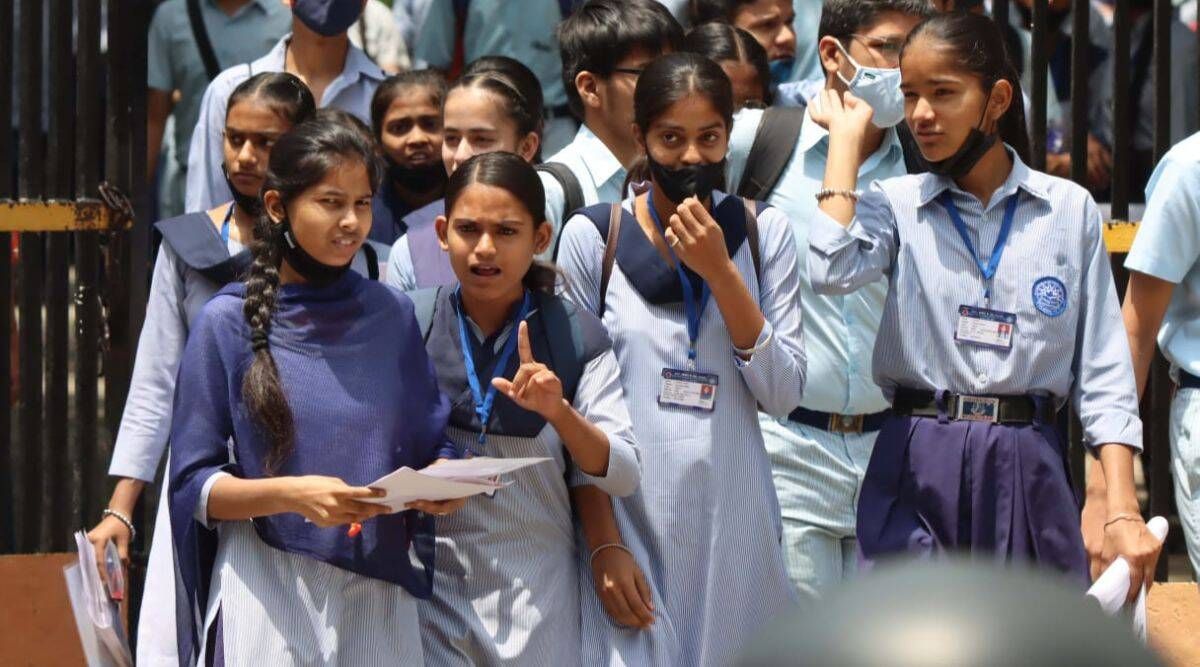Q. With UK universities exploring campuses in India, is LSE considering a footprint in India?
There’s a range of opportunities from a full-fledged branch campus to in-country programs to partnerships with universities. We’ll explore all options to see what makes most sense for us. It’s different for different universities, so we haven’t made a decision yet.
Q. What led to the financial crisis where nearly three-quarters of UK institutions are expected to face deficits by September 2025?
UK universities traditionally depended on government support, which shifted in the 1990s towards government-subsidised loans. In 2010, they capped fees and haven’t raised them since. This strained most schools with predominantly UK students. LSE avoided this problem because we can charge market rates to international students, who make up 70% of our population. Most universities are now seeking more international students as their only way to increase resources. LSE foresaw this and also developed philanthropy and extended education programs, while many UK universities now struggle without these resources.
Q. What according to you is the way out?
Several options exist: The Labour government could choose options ranging from increasing fees to opening up to market rates, though the latter would be unpopular. Government could increase support as it used to. Universities must maximise efficiency while growing alumni support and extended education programs. Lifelong learning addresses rapidly changing skill requirements while generating income. I’m unsure if mergers or closures are inevitable. Mergers face cultural challenges, while closures harm students and staff. Better solutions must be found.
Q. At a time when universities face staff cuts and course closures, how do you justify the £42.4 million spent on vice-chancellors’ pay across 121 universities last year? Is this leadership by example during these challenging times?
Obviously it’s unseemly for leadership to be paid grossly disproportionately to others. But compare what a vice chancellor gets to a corporate president – it’s not even close. The idea that vice chancellors are overcompensated given the challenges of the job today, I just don’t accept. It’s an incredibly difficult position with significant sacrifices. I took a 60% pay cut to come to the UK because the job is challenging and interesting. The real financial crisis comes from the government restricting our ability to charge fees proportionate to the cost of education we provide. The problem isn’t money wasted on salaries. That’s looking in the wrong direction.
Story continues below this ad
Q. But universities are being forced to let go of people. One might naturally think if you can’t afford to keep staff, perhaps leadership salaries should be reconsidered..
The difference between what a vice chancellor gets and what people might think reasonable won’t save jobs. It’s merely a gesture. The real problem is in the fee structure, how we’re permitted to operate, and costs imposed by government bureaucracy. Sometimes it looks like they’re trying to put us out of business. They impose massive costs for reports nobody will use, demanding outside review of exams and grading of scholarship. Universities spend enormous amounts preparing for these reviews – costs that dwarf anything spent on leadership salaries.
Q. How does generative AI’s threat to academic integrity compare to traditional plagiarism, and are existing policies adequate to address this new challenge?
AI is harder to detect than plagiarism because it creates unique content each time. You can spot patterns in AI writing, but detection isn’t certain enough for punishment. But I believe this is the wrong approach anyway. Rather than controlling AI, we should embrace
these tools as learning resources. The question becomes: what and how should we teach when students use AI?
Story continues below this ad
At LSE, we’ve created a grant program for faculty to redesign courses around AI, with expert support for AI integration. Their materials are shared openly so others can learn from these approaches. We don’t have a universal policy – departments establish their own guidelines while maintaining academic integrity standards.
We must think of AI like calculators a generation ago. You don’t ban them; you reconsider what to teach and how to assess learning with these tools. It’s not about stopping AI use, but educating effectively in a world where it exists.
Q. In the US, the Trump campaign has vowed to cancel student visas of those taking part in pro-Palestinian protests. What is your view on such punitive responses?
The US university system has been an enormously beneficial thing for the world. I think the actions the Trump administration is taking against it now are going to damage it hugely. I was a constitutional law scholar. The First Amendment applies on US territory regardless of where the person is from. So it’s wrong for any administration to punish people for exercising free speech. I think I’ll stop there.
Story continues below this ad
Q. Are you concerned about the precedent this sets for academic freedom and the right to protest globally?
Certainly it won’t for us. Well, I’m sure the British government is not going to do what the American government is doing.
Q. How do you justify LSE becoming the first UK university to secure a court order last year against pro-Palestinian student protesters, and what message does this send about free expression on your campus?
We fully embrace free speech. Initially, we allowed students to encamp inside a building and engaged in negotiations about their demands. However, they expanded to cover the entire first floor with tents, blankets, posters, and electronic equipment, creating a significant fire hazard confirmed by two inspections. This forced us to shut down the building, displacing 400 faculty and staff and disrupting 450 planned events. We believe in free speech, but its limits are: you can’t do anything illegal, harass individuals, or significantly disrupt school business. When the protest crossed into substantial disruption, our hand was forced. We got the court order to vacate the building while still offering to continue conversations. At that point, we had no choice.
Story continues below this ad
Q. How should a university balance student activism with maintaining academic neutrality and free speech?
The limits are: you cannot do anything illegal, harass or bully individuals, or disrupt school business. Our obligation is to protect everyone. We have people not involved in protests who need to work and study. Students have paid to come study, and protests can’t prevent them from doing their work. There’s plenty of room to express ideas, which we fully support, but those are the boundaries we must maintain.
Q. What is your view on academic institutions taking a stand on political issues?
I think it’s a mistake for institutions to take positions because it inevitably shuts down free speech for those with different views on campus. Our role is to create a space where students, faculty and staff can engage in open exchange and debate. To protect their free speech, the institution should not take positions itself.
Story continues below this ad
Q. Given warnings about UK universities compromising academic freedom by becoming financially dependent on partnerships with authoritarian states like China, how does LSE navigate this tension while maintaining its principles? Are there red lines you won’t cross, even at the cost of funding?
Yes, and they’re clear when we enter into the partnerships, whether it’s with the government or a private donor. It’s always the same, which is the university is going to protect the integrity of its processes and donors can’t dictate what we’re going to do, what the research is going to find or anything like that. that goes into the partnership at the front end.
Q. How would LSE handle a situation like UCL’s , where a teacher last year was barred from teaching a course after complaints from Chinese students, considering your large Chinese student population?
That’s different. It’s not outside dictation but balancing competing demands within our community. You navigate case-by-case. We won’t tell professors what to teach or say, nor force students to take classes with professors they object to. For elective courses, students can choose alternatives. We tell professors they have views but also responsibilities to create a welcoming environment for all students without ostracising anyone. These situations require ongoing balance.
Story continues below this ad
Q. Has LSE ever had to balance such “competing demands” given the large international student body on campus?
We haven’t faced an explicit situation like that that I’m aware of, certainly not since I’ve been there. What I would say is we’re aware of the possibility. So an ongoing conversation in the university is about the difference between your responsibilities inside the classroom and your freedoms outside. Academic freedom protects your ability to teach what it is that you think you should teach, and your contractual responsibilities to the students require you to do it in a way that nevertheless does not exclude or ostracise some of them or make them feel completely unwelcome in the classroom.
Q. How has higher education changed for good and for worse since the pandemic?
The negative changes are that class attendance hasn’t fully recovered, and student social interactions were affected by isolation during the pandemic. This should improve as newer students who didn’t experience this isolation enter university.
On the positive side, we’ve learned to use technology to enhance classroom teaching. We can now do things we hadn’t considered before. I believe large lectures will disappear within 10-20 years. Instead, lectures will be recorded for students to watch independently, allowing in-person time to focus on small group problem-solving and essential skills. COVID accelerated this transformation in education.
Story continues below this ad
Q. Global university rankings have gained outsized influence in recent years, often being treated as proxies for institutional quality or performance. How have global university rankings influenced institutional priorities? Has LSE ever made decisions primarily to improve its ranking position?
Probably not a single university administrator anywhere likes rankings. I understand their purpose, but the problem is institutions must prioritise what rankings measure. Universities are complex with different priorities, and reducing them to a single ranking creates huge distortions. Students over-rely on rankings, missing that a lower-ranked university might be better for them.
At the same time, I understand why rankings exist. With so many universities, people need guidance. Ideally, we’d have fewer ranking efforts or group universities more broadly, with qualitative analysis of their differences to help students find what’s best for their specific interests







